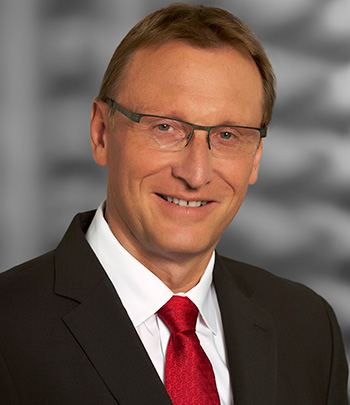 Bernd Fischer
Bernd FischerBernd Fischer, Group CEO of Technymon GBT, which produces sliding bearings, provides insight on the current state of the global bearings market, and how the company plans to capture the knowledge of retirement-age employees.
P&S: What is your assessment of the current global bearings market?
Fischer: The bearings market typically aligns with the general industrial engineering and automotive market. While demand for bearings in North America and India is strong, it is waning in other parts of the world, including Europe and China.
P&S: How are some of the expenditures that many governments are planning to make for improved infrastructure affecting your business, or how do you expect it to?
Fischer: The construction and oil and gas industries are both relatively strong (even in Europe, where other industries are suffering), and U.S. infrastructure projects continue to rise. As a result, our valve-related business (Technymon Fritex material) is growing.
P&S: What challenges are your company facing right now?
Fischer: Our portfolio of plain bearing products and materials has grown, especially after our acquisition of a leading Bimetal bearings producer earlier this year. As a result, we’re eager to expand our reach, both domestically and abroad. However, the sales cycle in our industry is quite long—six months up to three years—and so our work now has yet to achieve a “payoff.” Additionally, we must minimize market disruptions, which means becoming more efficient in all phases of our operations.
P&S: What is the next thing to watch in the bearings industry?
Fischer: The bearings industry is typically conservative and slow to adopt change. Nevertheless, there is a trend toward lighter and smaller bearings. Applications like hydraulic pumps are increasing efficiency and, at the same time, getting smaller, which provides a huge bearings design challenge. In some high-end applications in the hydropower industry, there is a need for condition monitoring, due to sensors integrated in the bearings.
P&S: Many companies are commenting that finding the right people to hire is a major challenge—how is your company dealing with that? And do you have a plan in place to capture the knowledge of retirement-age employees before they leave?
Fischer: People are the most important asset in a company and finding the right ones is an ongoing challenge. We have developed a strong relationship with our local community, and we routinely draw from its deep network of talent for all positions, including management. Additionally, our experience in the bearings industry has been invaluable in helping us connect with the most talented personnel. Retirement-age employees is a timely topic. We are in very close contact with a group of retirees across the globe and they are our first go-to training source when an opening becomes available.
P&S: What book has influenced you and why?
Fischer: I’m particularly fond of Don Miguel Ruiz’s “The Four Agreements,” which offers timeless messages about how to live and navigate our lives. With themes touching on enlightenment and freedom, I frequently reread passages, which helps me maximize the enjoyment of my life one day at a time.
P&S: What is your favorite podcast to listen to and why?
Fischer: As a native German, I’m always interested to learn about goings-on in other parts of the world. I like the BBC’s “Global News,” which provides objective reports on political, social and financial topics. I also listen to “Spiegel Online,” which offers daily updates on the latest news events—always important when steering a global company.


